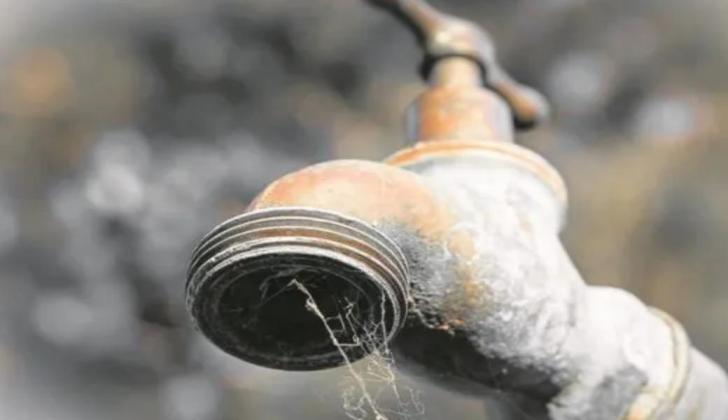News / National
70% of Bulawayo water contaminated
14 Apr 2025 at 09:18hrs | Views

A recent quality monitoring exercise conducted by the Bulawayo City Council has revealed alarming levels of water contamination in the city, with seven out of 10 water samples showing unsatisfactory results. The exercise, which aimed to assess the safety of the city's water supply, found that a significant number of water points tested positive for harmful bacteria, including faecal coliforms, non-faecal coliforms, and high coliform counts.
According to the latest council minutes, 51 routine bacteriological samples were collected and sent to Criterion Laboratory for analysis. However, the council noted that the monthly target of 85 samples was not met due to ongoing water shedding and interruptions, which have been affecting water supply across the city.
Out of the 51 samples, nine were found to be positive for faecal coliforms, a clear indicator of contamination from faecal matter. These samples, representing approximately 17% of those tested, were reported to the sanitation department for further investigation and corrective action. Follow-up samples were taken from Tower Block, one of the affected areas, and the results showed an improvement, with the faecal coliforms now absent. The council has indicated that additional follow-up samples will be taken from other affected points to assess the effectiveness of the corrective measures.
The report also highlighted that 32 samples, or 63%, were positive for non-faecal coliforms, which also points to water contamination. Additionally, 16 samples (31%) exhibited high coliform counts, further raising concerns over the safety of the water.
Overall, 34 of the 51 samples - approximately 67% - were deemed unsatisfactory, with at least one of the three critical parameters (high coliform count, non-faecal coliforms, and faecal coliforms) showing negative results. This indicates a significant level of contamination in the city's water supply, posing potential health risks to residents.
The affected areas include several high-traffic locations such as Tower Block, Sidojiwe Flats, Magwegwe Clinic, Holiday Inn, Zesa Power Station, Steeldale, and United Spring, among others. These sites, along with others, have been flagged for contamination and will be closely monitored by the city's health and sanitation departments.
In addition to faecal contamination, the presence of non-faecal coliforms and high coliform counts was also noted in a range of areas, including the Bulawayo Country Club, Zesa Power Station, Petra Primary School, and various shopping centres. These findings have raised concerns about the integrity of the city's water supply and the effectiveness of the current water management systems.
The council is taking steps to address the issue, with follow-up samples being taken from affected sites and corrective actions being implemented to prevent further contamination. However, the situation highlights the urgent need for improved water quality management and infrastructure to ensure that residents have access to clean and safe drinking water.
As the city continues to grapple with water quality challenges, the Bulawayo City Council has vowed to remain vigilant in monitoring water sources and addressing any contamination issues to safeguard public health.
According to the latest council minutes, 51 routine bacteriological samples were collected and sent to Criterion Laboratory for analysis. However, the council noted that the monthly target of 85 samples was not met due to ongoing water shedding and interruptions, which have been affecting water supply across the city.
Out of the 51 samples, nine were found to be positive for faecal coliforms, a clear indicator of contamination from faecal matter. These samples, representing approximately 17% of those tested, were reported to the sanitation department for further investigation and corrective action. Follow-up samples were taken from Tower Block, one of the affected areas, and the results showed an improvement, with the faecal coliforms now absent. The council has indicated that additional follow-up samples will be taken from other affected points to assess the effectiveness of the corrective measures.
The report also highlighted that 32 samples, or 63%, were positive for non-faecal coliforms, which also points to water contamination. Additionally, 16 samples (31%) exhibited high coliform counts, further raising concerns over the safety of the water.
The affected areas include several high-traffic locations such as Tower Block, Sidojiwe Flats, Magwegwe Clinic, Holiday Inn, Zesa Power Station, Steeldale, and United Spring, among others. These sites, along with others, have been flagged for contamination and will be closely monitored by the city's health and sanitation departments.
In addition to faecal contamination, the presence of non-faecal coliforms and high coliform counts was also noted in a range of areas, including the Bulawayo Country Club, Zesa Power Station, Petra Primary School, and various shopping centres. These findings have raised concerns about the integrity of the city's water supply and the effectiveness of the current water management systems.
The council is taking steps to address the issue, with follow-up samples being taken from affected sites and corrective actions being implemented to prevent further contamination. However, the situation highlights the urgent need for improved water quality management and infrastructure to ensure that residents have access to clean and safe drinking water.
As the city continues to grapple with water quality challenges, the Bulawayo City Council has vowed to remain vigilant in monitoring water sources and addressing any contamination issues to safeguard public health.
Source - newsday



























